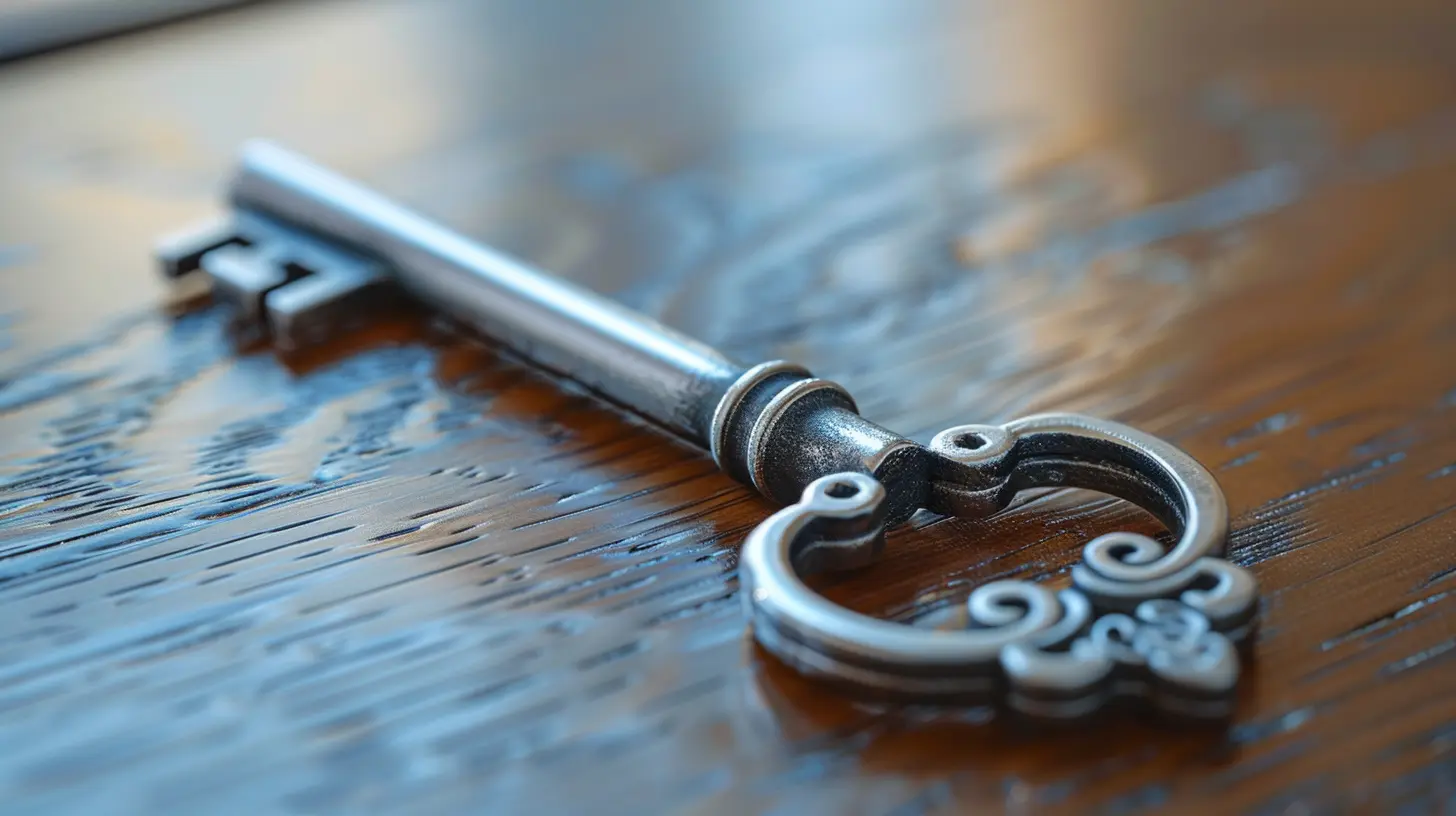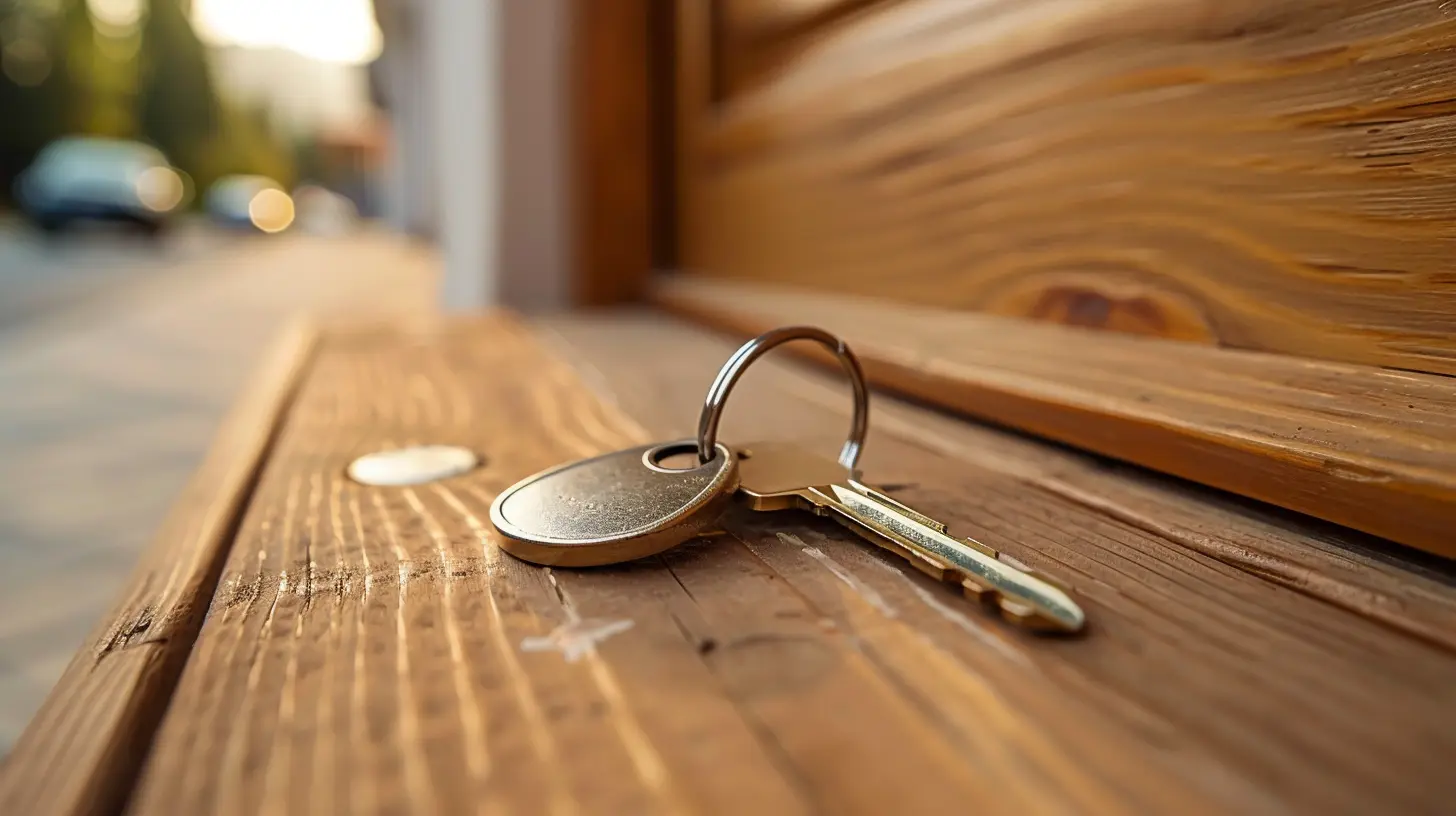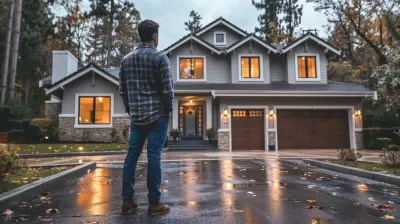29 March 2025
Buying your first home is exciting, but let’s be honest—it’s also a little nerve-wracking. You’re making one of the biggest purchases of your life, and the last thing you want is for it to become a financial burden down the road. That’s where future-proofing comes in.
When you future-proof your home purchase, you’re making decisions now that will protect your investment, adapt to your evolving needs, and ensure your home remains both valuable and functional for years to come.
So, how do you do that? Let’s dive in. 
1. Choose the Location Wisely
The old saying “location, location, location” isn’t just real estate jargon—it's a golden rule. A home’s location impacts everything from your lifestyle to property value appreciation.What Should You Look for in a Location?
- Growth Potential: Choose areas with signs of growth—new businesses, infrastructure improvements, and low crime rates are all good indicators.- Commute & Accessibility: A long commute can feel manageable now, but will it be the same five years from now? Look for good public transportation, highways, and access to amenities.
- School Districts Matter: Even if you don’t have kids, buying near a well-rated school district can boost resale value.
A home in the right location will remain in demand, protecting your investment over time. 
2. Think Long-Term About Space
Your dream starter home might feel perfect today, but what about three, five, or ten years from now? Life changes—and so do your space needs.Consider:
- Growing Families: If you plan on having kids (or pets!), will the home still be suitable?- Remote Work Trends: Many jobs now offer work-from-home options, making home office space a must-have.
- Aging in Place: Even if you’re young now, think about accessibility for older relatives—or your future self.
Pro tip: Buying a home with flexible spaces—like an extra bedroom, a finished basement, or an attic—gives you options down the road. 
3. Prioritize Energy Efficiency
With rising utility costs, an energy-efficient home isn’t just good for the planet—it’s good for your wallet.What to Look for:
- Good Insulation & Windows: Proper insulation and double-pane windows keep energy bills low.- Smart Thermostats & Appliances: Homes equipped with smart technology can save you hundreds yearly.
- Solar Panels (If Possible): Solar power can drastically reduce energy costs and increase home value.
An energy-efficient home will remain attractive to future buyers and will cost less to maintain over the years. 
4. Budget Beyond the Purchase Price
Many first-time buyers focus solely on the mortgage and down payment, but ongoing homeownership costs are just as important.Hidden Costs to Keep in Mind:
- Property Taxes & Insurance: These can fluctuate over time—research the trends in your area.- Maintenance & Repairs: A general rule of thumb is to budget 1-2% of your home’s value per year for upkeep.
- Homeowners Association (HOA) Fees: If buying in a community with an HOA, factor this into your monthly expenses.
Future-proofing means preparing for all costs, not just the obvious ones.
5. Avoid Over-Personalizing Your Home
We all want a home that reflects our personality, but going too bold with renovations can backfire.Why?
- Highly Customized Features May Hurt Resale Value: A home with a bright pink kitchen or built-in aquarium might appeal to you—but not necessarily to future buyers.- Trendy Styles Can Feel Outdated Quickly: Stick to classic, timeless designs that won’t feel old in five years.
- Keep It Neutral: If you must go bold, do it with furniture and decor, not permanent fixtures.
Think of your home like a blank canvas—while you should personalize it, make sure it remains attractive to a broad audience if you ever sell.
6. Opt for Quality Over Cheap Fixes
It’s tempting to cut corners with cheaper materials and DIY projects, but this can cost you more in the long run.Invest In:
- Durable Flooring: Hardwood or high-quality laminate lasts far longer than cheap carpeting.- Sturdy Roofing & Plumbing: A solid roof and good plumbing prevent costly repairs years down the line.
- Good Kitchen & Bathroom Fixtures: These areas see the most wear and tear—invest in quality appliances and fixtures.
A well-built home will stand the test of time and be easier to sell if the need arises.
7. Pay Attention to Smart Home Features
Technology is rapidly changing homeownership, and future buyers will likely expect smart home capabilities.Smart Features Worth Considering:
- Security Systems: Smart locks, cameras, and alarm systems increase safety and home value.- Energy Management: Smart thermostats and lighting help optimize energy usage.
- Automation: Voice-controlled home assistants or automated blinds can make daily life more convenient.
While these features aren’t mandatory, integrating smart technologies can set your home apart in the future market.
8. Stay on Top of Home Maintenance
A neglected home loses value quickly. Regular maintenance can extend the life of your home’s most critical components.Essential Maintenance Tasks:
- Gutters & Roof: Clean gutters and inspect the roof annually to prevent water damage.- HVAC System: Servicing your heating and cooling system can prolong its life and improve efficiency.
- Pest Control: Regular inspections help prevent infestations that can lead to expensive structural damage.
Preventative maintenance is far easier (and cheaper) than fixing major issues down the line.
9. Consider Future Resale Value
Even if you plan to stay in your home for the long haul, life happens—job relocations, family changes, or new opportunities may arise.How to Protect Resale Value:
- Buy Below the Top of the Market: Purchasing a home slightly below the area’s price ceiling gives you more room to build value.- Choose a Desirable Layout: Open floor plans are widely popular, while awkward layouts can be deal-breakers.
- Avoid Overbuilding for the Neighborhood: If your home is vastly more upgraded than others on your street, it might be harder to sell.
Keeping resale value in mind ensures you’ll get the best return on investment when the time comes.
10. Build a Strong Financial Safety Net
Buying a home is a big financial step, but it shouldn’t leave you house poor—meaning all your money goes into the home, leaving little left for emergencies or lifestyle needs.Smart Financial Moves:
- Emergency Fund: Aim for three to six months' worth of expenses in savings.- Avoid Maxing Out Your Budget: Just because you can afford a home at the top of your pre-approval range doesn’t mean you should.
- Keep Investing & Saving: Don’t abandon other financial goals, like retirement savings, just to afford a bigger home.
Your home should be a place of security, not financial stress.
Final Thoughts
Future-proofing your first home purchase isn't about predicting the future—it’s about making smart, flexible choices that give you room to grow, adapt, and protect your investment.By focusing on location, space, energy efficiency, budgeting, and long-term maintenance, you’ll set yourself up for success and avoid costly mistakes.
Your first home should be a blessing, not a burden. So take your time, do your research, and make decisions that will serve you well for years to come.





Corinne Estes
Future-proofing your first home purchase involves considering long-term value, location trends, and potential resale appeal. Focus on energy-efficient features, versatile layouts, and nearby amenities. Research the neighborhood’s growth potential, and prioritize quality construction to ensure your investment remains resilient against market fluctuations and changing lifestyles.
April 3, 2025 at 2:56 AM